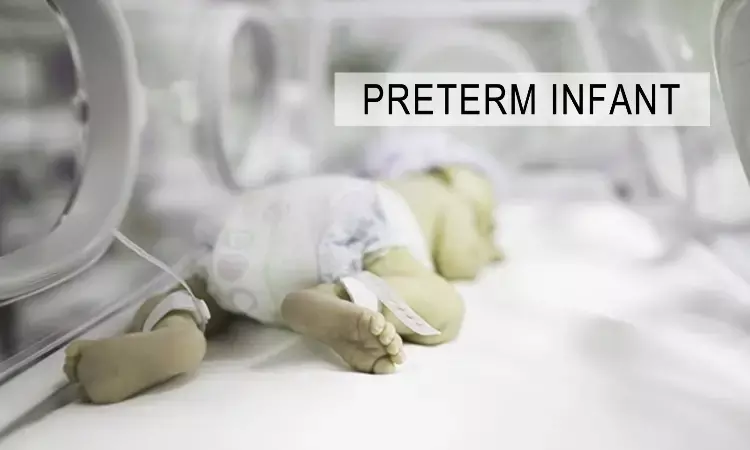- Home
- Medical news & Guidelines
- Anesthesiology
- Cardiology and CTVS
- Critical Care
- Dentistry
- Dermatology
- Diabetes and Endocrinology
- ENT
- Gastroenterology
- Medicine
- Nephrology
- Neurology
- Obstretics-Gynaecology
- Oncology
- Ophthalmology
- Orthopaedics
- Pediatrics-Neonatology
- Psychiatry
- Pulmonology
- Radiology
- Surgery
- Urology
- Laboratory Medicine
- Diet
- Nursing
- Paramedical
- Physiotherapy
- Health news
- Fact Check
- Bone Health Fact Check
- Brain Health Fact Check
- Cancer Related Fact Check
- Child Care Fact Check
- Dental and oral health fact check
- Diabetes and metabolic health fact check
- Diet and Nutrition Fact Check
- Eye and ENT Care Fact Check
- Fitness fact check
- Gut health fact check
- Heart health fact check
- Kidney health fact check
- Medical education fact check
- Men's health fact check
- Respiratory fact check
- Skin and hair care fact check
- Vaccine and Immunization fact check
- Women's health fact check
- AYUSH
- State News
- Andaman and Nicobar Islands
- Andhra Pradesh
- Arunachal Pradesh
- Assam
- Bihar
- Chandigarh
- Chattisgarh
- Dadra and Nagar Haveli
- Daman and Diu
- Delhi
- Goa
- Gujarat
- Haryana
- Himachal Pradesh
- Jammu & Kashmir
- Jharkhand
- Karnataka
- Kerala
- Ladakh
- Lakshadweep
- Madhya Pradesh
- Maharashtra
- Manipur
- Meghalaya
- Mizoram
- Nagaland
- Odisha
- Puducherry
- Punjab
- Rajasthan
- Sikkim
- Tamil Nadu
- Telangana
- Tripura
- Uttar Pradesh
- Uttrakhand
- West Bengal
- Medical Education
- Industry
Furosemide has safety issues in all preterm infants at risk of bronchopulmonary dysplasia

DENVER: A randomized controlled trial has evaluated the safety of furosemide in preterm infants at risk of bronchopulmonary dysplasia and found that Furosemide increased the risk of electrolyte adverse events.
Findings from the study will be presented during the Pediatric Academic Societies (PAS) 2022 Meeting, taking place April 21-25 in Denver.
The objective of the study was to evaluate the safety and preliminary efficacy of furosemide in preterm infants at risk of developing bronchopulmonary dysplasia.
Researchers found that in preterm infants at high risk for bronchopulmonary dysplasia, adverse events occurred in nearly all infants regardless of treatment group. furosemide increased the risk of electrolyte adverse events. There was no difference in hearing loss, nephrocalcinosis, or bronchopulmonary dysplasia/death.
"The drug furosemide is commonly used in premature infants hospitalized in the neonatal intensive care unit to prevent bronchopulmonary dysplasia, a type of chronic lung disease," said Rachel G. Greenberg, MD, MB, MHS, associate professor of pediatrics with the division of neonatal-perinatal medicine at Duke University Medical Center, and program director with Duke Neonatal-Perinatal Medicine Fellowship. "Unfortunately, very little data is available to help neonatologists understand whether furosemide is safe and effective. Our study, which was performed at 17 centers within the NICHD Pediatric Trials Network, was the first randomized controlled trial to evaluate the safety and preliminary efficacy of furosemide in premature infants at risk for developing bronchopulmonary dysplasia."
Dr. Greenberg added: "We found that infants exposed to furosemide had more electrolyte problems but no greater risk of overall safety events, including kidney stones and hearing problems. The results of this study will help the practicing neonatal provider and help to design future trials."
Dr. Greenberg will present "Safety of Furosemide in Preterm Infants at Risk of Bronchopulmonary Dysplasia: A Randomized Controlled Trial" on Saturday, April 23 at 1:15 p.m. MDT. Reporters interested in an interview with Dr. Greenberg should contact PAS2022@piercom.com.
The PAS Meeting connects thousands of pediatricians and other health care providers worldwide. For more information about the PAS Meeting,
Dr Kamal Kant Kohli-MBBS, DTCD- a chest specialist with more than 30 years of practice and a flair for writing clinical articles, Dr Kamal Kant Kohli joined Medical Dialogues as a Chief Editor of Medical News. Besides writing articles, as an editor, he proofreads and verifies all the medical content published on Medical Dialogues including those coming from journals, studies,medical conferences,guidelines etc. Email: drkohli@medicaldialogues.in. Contact no. 011-43720751


